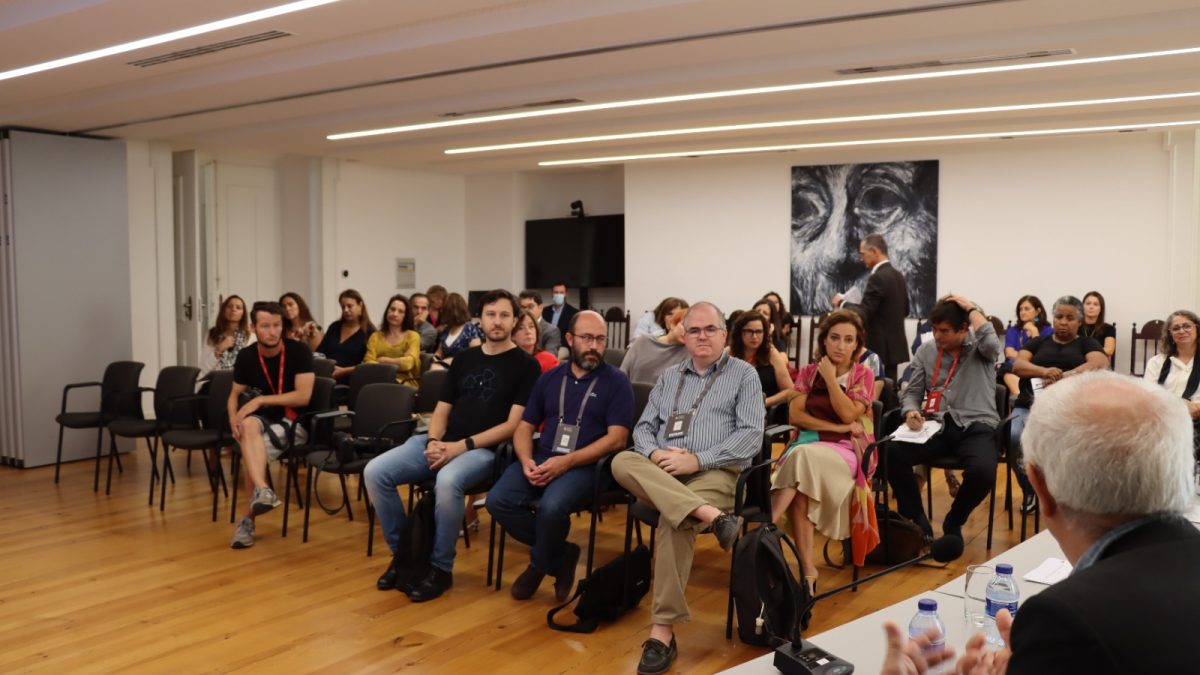
Supreme Court of Justice introduces new AI tool developed at INESC ID
On October 4th, the “Supremo Tribunal de Justiça” (STJ) hosted in its headquarters an open public session to present the results of “IRIS – Information, Rationalization, Integration and Summarization: Application of Artificial Intelligence Techniques at the Supreme Court of Justice”. In this project, the INESC ID researchers developed a set of tools, based on Artificial Intelligence (AI) techniques, to allow an easier access to court decisions.
That resulted in three main IT features: an Optical Character Recognition (OCR) service for large documents (over a thousand pages) which will allow STJ to convert paper archived rulings into searchable text; an online publication service allowing an easy search of all the digital Jurisprudence rulings by the STJ,; and finally, an anonymization tool, which is already being used by the STJ and will now be made available to all courts, through a protocol signed at the event with the “Conselho Superior de Magistratura”.
José Borbinha, researcher at INESC ID, Professor at Técnico and one of the project coordinators explains that “this new solution allows, in one hand, to simplify the complex task of analyzing these types of documents thanks to the support of AI techniques, and on the other hand to support the anonymization of judicial proceedings for reasons linked to the protection of personal data. This means for example that in a sentence or ruling of a Portuguese court, the names of those involved and their personal data are no longer included.”
The IRIS research team used artificial intelligence and machine learning techniques to achieve the project goals “We had 19 members from INESC ID working under this project, from junior to senior researchers from different research areas who completed different tasks: from image segmentation to extract information, to OCR applied to images and text extraction, analysis of natural language, document search and retrieval, and finally person-machine interface for all the challenges listed above”, explains José Borbinha.
According to the researcher ”one of the main motivations for this project were the Conclusions of the Council of the Member States of the EU, on the adoption of good practices regarding the online publication of judicial decisions”, a document published in the Official Journal of the European Union. José Borbinha adds that “the project had a significant technological and innovative contribution to the adoption of some of these recommendations in Portugal”.
The IRIS Project is an initiative of the Supreme Court of Justice, co-financed by the Support System for Digital Transformation of the Public Administration program (SAMA) under COMPETE 2020 as part of the Portugal 2020, and by the European Social Fund.
Team members:
#Scientific coordinators
José Borbinha (Técnico / INESC-ID)
Ricardo Ribeiro (Técnico / Iscte-IUL)
#Technical coordinator
Diogo Almiro (INESC-ID)
#Senior Researchers (INESC-ID)
Flávio Martins (Técnico / INESC-ID)
Daniel Gonçalves (Técnico / INESC-ID)
Helena Sofia Pinto (Técnico / INESC-ID)
Miguel Won (INESC-ID)
Isabel Trancoso (Técnico / INESC-ID)
Pedro Santos (Técnico / INESC-ID)
João Dias (UAlgarve / INESC-ID)
Elsa Cardoso (Técnico / Iscte-IUL)
# Junior Researchers (INESC-ID research team and Técnico students)
Martim Zanatti (PhD / Técnico)
André Oliveira (MSc / Técnico)
Henrique Fernandes (MSc / Técnico)
João Dinis (MSc / Técnico)
João Simões (MSc / Técnico)
Luis Silva (MSc / Técnico)
Rui Melo (MSc / Técnico)
Sara Ferreira (MSc / Técnico)
More about the project here.
